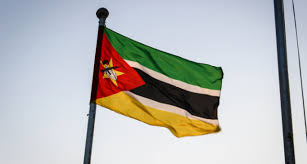Credit Suisse’s Global Bribery and Fraud Scheme (Part II of II)

The Credit Suisse case highlights the significant impact that global corruption and fraud can have on developing economies. Mozambique’s economy suffered serious harm from the scheme, which started to unravel when the IMF uncovered problems with the financing and accounting for the tuna fishing project. The Mozambican people have suffered real and significant harm directly as a result of this criminal scheme.
Additionally, the Credit Suisse case underscores the broad application of the FCPA – in particular, the books and records and internal controls provisions. The SEC’s enforcement action flows from the FCPA provisions, as well as its securities fraud authority.
The scheme related to three interconnected transactions involving a syndicated loan and two securities offerings, which included (1) a 2013 $622 million syndicated loan to ProIndicus, a Mozambican state-owned for which Credit Suisse provided $504 million in financing—and an extension of payment terms in a later, related transaction; (2) a 2013 $850 million offering of interest-bearing loan participation notes (“LPNs”) marketed and sold to the international bond market to finance debt offered to a second Mozambican state-owned entity known as Empresa Mocambicana de Atum S.A. (“EMATUM”), to which Credit Suisse also provided $500 million in financing; and (3) a 2016 bond offering by the Republic of Mozambique, which occurred after Credit Suisse discovered several irregularities and risks associated with the EMATUM offering, that allowed investors to exchange their LPNs for new sovereign bonds issued directly by the government of Mozambique. The-then Minister of Finance signed a guarantee on behalf of Mozambique for the ProIndicus and EMATUM LPN transactions. Mozambique has since disputed the validity of the guarantees.

Three Credit Suisse bankers took advantage of this situation to arrange substantial kickbacks of approximately $50 million and the payment of bribes to various Mozambican corrupt government officials totaling approximately $150 million. The Credit Suisse bankers were able to carry out this scheme as a result of Credit Suisse’s deficient internal accounting controls and deliberate ignorance of significant due diligence information raising significant red flags as to the role of several individuals and entities in the transactions.
For example, Credit Suisse turned up scores of red flags during an enhanced due diligence relating to Privinvest, the sole contractor for the tuna fishing industry contract. Credit Suisse conducted the due diligence internally and hired a due diligence firm to review Privinvest and the board of directors of ProIndicus. The due diligence process uncovered significant bribery concerns relating to a key affiliate of Privinvest, who was “heavily involved in corrupt practices” and “viewed kickbacks as an acceptable part of his everyday business strategy.” Credit Suisse had previously designated this same individual as “ an “undesirable client.” A Credit Suisse senior executive objected to the affiliate’s participation with Privinvest and the Mozambique project.
The subsequent report prepared by the due diligence firm, which was reviewed by multiple executives, including compliance, risk and other functions, described this same executive as a “master of kickbacks” and included other findings, such as: “All sources we spoke to about [Privinvest Affiliate] were confident of his past and continued involvement in offering and receiving bribes and kickbacks” and “without exception … have raised concerns about the integrity of [Privinvest Affiliate’s business practices,” and that “[he] was heavily involved in corrupt practices.” Similar observations and conclusions were contained in the due diligence report. Despite all of this information, Credit Suisse went forward with the Privinvest Affciliate’s participation.

In 2016, Credit Suisse learned that EMATUM would not be able to pay back its debt, and then offered a restructuring exchange of the original bonds for Mozambique-guaranteed sovereign debt. The offering materials prepared by Credit Suisse did not disclose to investors the true nature of Mozambique’s debt and the extent of missing funds. In a related SEC enforcement action, VTB Bank, a UK-subsidiary of the Russian bank, agreed to pay more than $6 million related to its role with Credit Suisse in arranging the exchange offer.
In April 2016, Mozambique disclosed several hidden transactions and the true nature of its guaranteed debt. Mozambique also disclosed that it had misrepresented its public and publicly-guaranteed indebtedness to the International Monetary Fund (“IMF”). The IMF and other international donors halted financial support to Mozambique and, in turn, the country defaulted on the bonds.















